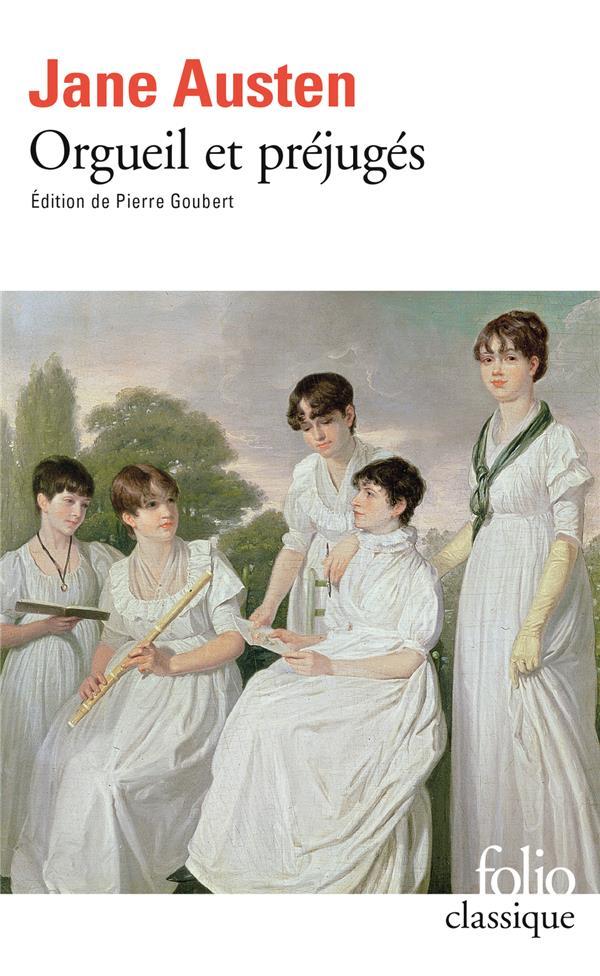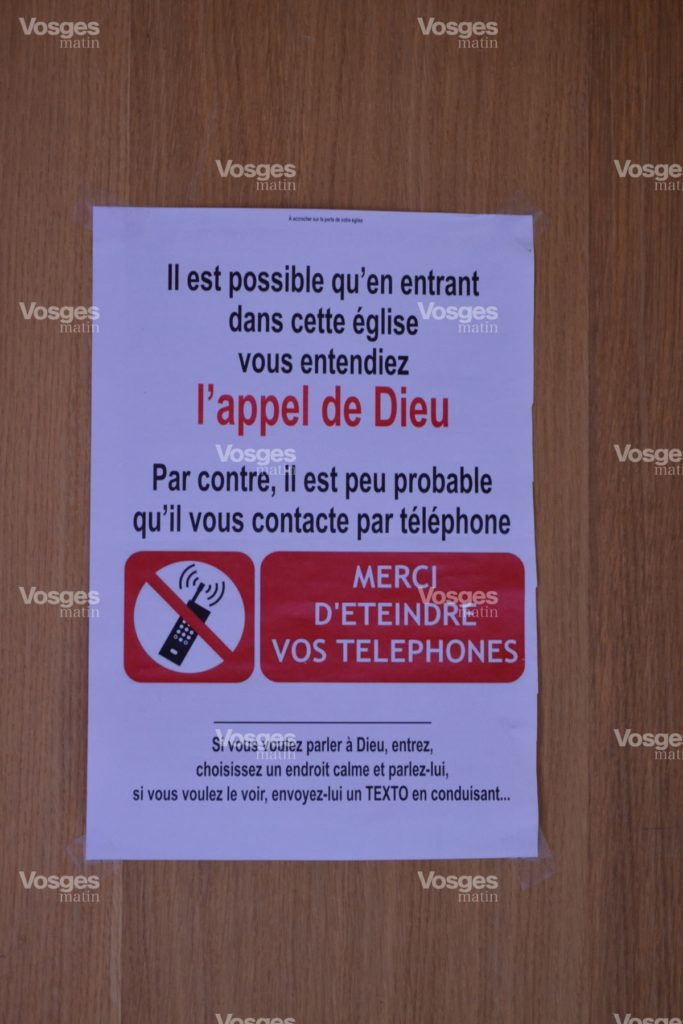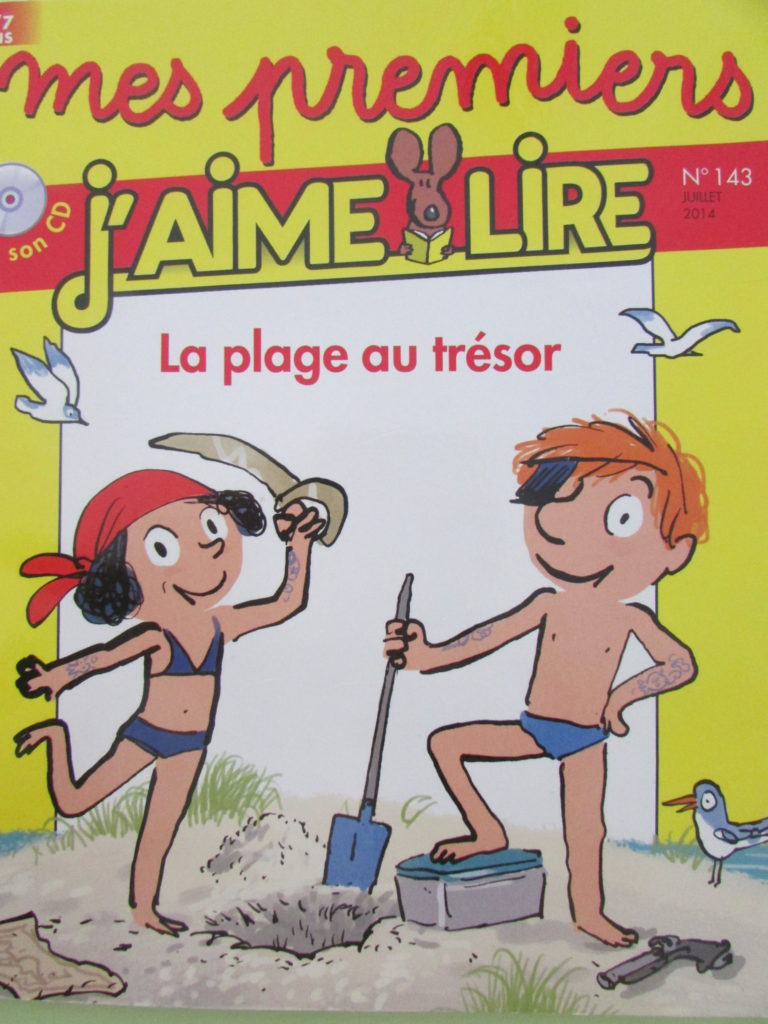Every two years, my cousin, who is a “brocanteur” in the North of France, fills her car to the brim with lovely french stuff to sell in my house around Christmas time. For me, it is a great way to invite people for something different than just a coffee and shares with pride my french heritage, while picking up the perfect Christmas presents with no hassle! For my cousin, she gets to practice her not-so-good English and spices up her usual sales with an “out-of-France” experience.
One year she had, among the colourful and unusual knick-knack she brings, a metal tea box with the written phrase “Thé ma copine”. I was so sure that this box would be gone within a couple of hours, perfect for the English clientele: a tea box, functional but original, cheap, with a sense of humour. But two days later, despite the success of the sale and the many clients, the box remained unsold. When asked which item I’d like to keep, I didn’t hesitate one second, and the box is now sitting in my kitchen, reminding me every day of the big cultural differences between nations.
The literal translation of “Thé ma copine” into “Tea my friend” makes no sense at all, and reveals the so funny and absurd exercice of translating if not well-equipped with all the necessary tools. It should say “T’es ma copine” which is a non-formal way of saying “You’re my friend”. Not a clever joke but a funny one nonetheless! And surely one that Google Translate won’t understand at all (I’ve tried, it says only “my girlfriend”)…
Why the French Lycée in London has been rated “Inadequate” by Ofsted?

In its latest Oftsed inspection, officially reported in January 2023, The Lycée Charles de Gaulle has been declared “Inadequate”, despite its 100% success at the French Baccalaureate. A big blow for a school that has been relying on its good reputation for years. Why such a discrepancy between the Ofsted’s judgement and the school’s academic results? It is all down to a difference of culture in education between France and the United Kingdom.
The British Education System is a nurturing one, a system where schools have academic duties but also pastoral duties; where the child is supposed to acquire knowledge but also learn to grow into a healthy and balanced adult. It is as important for children to succeed academically than personally – to become educated adults both in their brain, their mind and their body. While the French system focuses mainly on the academic side: teachers’ role in school is mainly to share knowledge.
Let’s look at the way the French government describes the role of a teacher. On the French Department for Education website, we can read the following under the title “Etre enseignant aujourd’hui” (To be a teacher today): “Accompagner ses élèves pour en faire des citoyens instruits et éclairés” (Accompany students to become educated and unlighted citizens). In this official text, the teacher has two main roles: 1) “la mission première est de développer le potentiel de chaque élève, afin de lui fournir les clés nécessaires pour réussir son parcours scolaire, lui donner le goût d’apprendre tout au long de sa vie et de penser par lui-même” (The first mission is to develop each student’s potential, in order to provide them with the necessary keys to succeed in their school journey, to give them the desire to learn all their life and to think by themselves); 2) “À travers son enseignement, il permet aux élèves de faire l’apprentissage du vivre ensemble pour devenir des citoyens capables de s’intégrer dans une société démocratique et de respecter les valeurs de la République.” (Through the teaching, the teacher allows students to get the knowledge of living together to become citizens able to integrate themselves in a democratic society and respect the Republican values- which in France are described as “Liberté-Egalité-Fraternité” / Liberty – Equality – Fraternity). In other words, the teacher’s responsibilities are to provide knowledge and a love for learning, and to shape a citizen in the political sense of the word. Nothing about wellbeing, mental health or vulnerability. When checking the composition of any school’s staff team, there is no mention of pastoral care. Safeguarding is understood in one sense only: protecting children from violence and other issues they could have outside of school, similar to the work of social services. Besides, the translation of “pastoral care” in French involves a religious meaning and can only be used in a religious context.
I don’t know why it has taken so long for Oftsed to notice that some serious failures were taking place in the Safeguarding area in the French Lycée. I suppose it is due to the fact that Ofsted has, over the last years, put a massive emphasis on Safeguarding in schools: if Safeguarding policies and general Safeguarding culture are not right, the school goes directly into the “Inadequate” section, with no consideration of results in other areas. And this time not even the reputation of Academic excellence could save the Lycee from being downgraded.
It is interesting to report the Headteacher’s comments following the report: he made a point to clarify that the school was still successful in the eyes of Ofsted in 4 categories (out of 6) – general quality of teaching, students’ behaviour and attitude, teaching quality in Early Years and 6th form. After all, it is where the priority stands, and remains.

One step forward, one step back; or the curse of being human.

This morning, I was faced with another of this article/disguised promotion claiming to understand how to live healthier for longer. I have long learnt to ignore such declarations, but this time I was enticed to listen to it all as the facts appeared to be more scientific than usual and the professor a true expert on his field. And let be honest, from time to time we all need a bit of guidance or reassurance on how to go through the second part of our life, the one when we are officially declining and condemned to be doomed, if only to pretend that we can age with grace. This American Professor, apparently a renowned surgeon and academic, mentioned that healthy guts were THE key for a long and happy life and a strong subject of research from his side in place of all other professional activities: the secret lives in our guts. And then he explained in details why, filling us with the latest discoveries due to an ever growing knowledge of our bodies’ ways of working. I heard again about the importance of probiotics but beyond that the even bigger importance of prebiotics and finally of butyrate, which I had never heard of before. I spare you all the details, as I am not here to write a medical article, and you have already predicted how the video ended: by selling butyrate supplements. And then it all came to me, as a revelation: the human being has gone an incredibly long way, and is still making giant steps, in understanding in any small detail how our bodies work on a medical matter but more than anything, and let be honest here, on a commercial one linked to the race to stay younger (and beautiful) for longer. And yet, in parallel, life expectancy is officially now falling back. There are several reasons for such a phenomenon: obesity (processed food), toxicity from plastics, chemicals, pollution, and mental health (suicides and overdoses on a all-time high). All diseases the results of the human being’s creation: what man/woman makes, he/she unmakes. One step forward, one step back. In other words: why bother? Until the human being behaves as the grand engineer of the world, there will be no respite from it all. Maybe another reason to give God a place back into our lives?
Are we really at war ?

Recently, my 14 years old daughter asked me to watch with her a movie recommended by her history teacher called “Testament of Youth”. I did vaguely remember seeing the poster when out in cinemas, identifying it as another romantic movie with a bit of historic background. I slightly reluctantly sat with her, mainly eager to fulfil my mothering duties in spending so called quality time with my children. 3o minutes into the movie and I was totally immersed into this deeply moving story, wishing I was actually there at the time sharing the lives of the main characters. From that moment onwards, as the story became more and more tragic, I simply couldn’t stop the tears falling down my cheeks and I was totally transported in time. Matters were made even worse when I discovered that the movie was inspired from an autobiography and all the events were real.
Since then, I have done a lot of thinking about what happened in the past and the way we live now. I find it hard to comprehend that people have lived through the 1st world war , only to suffer the 2nd World War twenty years later. That many young people died in that first war, but for the ones who survived and rebuilt their lives, they had potentially to see their own children dying in the second war. That parents had to send their children to fight as the “honourable thing”, only to do the same with their grand-children some years later.
Surely, we must be grateful today that, following such a carnage in the first part of the XXth century, the world has come to conclusion that in most cases – and unfortunately not all – peace is better than war. Looking through history, it is only since the second part of the XXth century that civilians have stopped going regularly to war, at least in Europe; for people living in England and most European countries, the idea of losing loved ones at war is mostly foreign.
Only that we have now become complacent about peace. Nowadays, we are taking for granted that all we own shouldn’t be taken away from us and that we are masters of our own lives. And anything that comes in the way of that perfectly established life is made very difficult to bare. Illnesses should be cured, money should be possessed, problems should be taken care of, happiness should be obtained . In a world where peace has become a given, human beings have more time to complain about their condition.
Isn’t it symptomatic that the current pandemic is referred to as “a war”? It doesn’t seem to me than anyone is dying to honour his country, or that we are consciously sending anyone to his death to defeat the disease. Yes, it does seem that people are risking their lives on a daily basis like in times of war, but have we forgotten that being human means risking our life every day anyway?
Tradition et modernité à l’anglaise

Avez-vous lu les romans de Jane Austen? Cet écrivain fait partie du Panthéon des auteurs classiques de la littérature britannique. Ses romans les plus connus ont été portés au cinéma et à la télévision, ayant notamment rendu l’acteur Colin Firth célèbre dans le rôle de Mr Darcy grâce à une scène mythique où il apparait en simple chemise blanche après avoir nagé dans un lac (cherchez sur youtube “Colin Firth Mr Darcy – The lake scene”, pour voir une des scènes les plus sexys du cinéma anglais!) – scène qui d’ailleurs n’existe pas dans le livre….
Mais là n’est pas le sujet. Le roman “Orgueil et Préjugés” (Pride and Prejudice en langue originale) raconte le destin de jeunes filles de la bonne société dans la campagne anglaise au XVIIIè siècle à travers le portrait de 5 soeurs aux personnalités très différentes. Toutes ont cependant en commun leur bonne éducation selon les critères de l’époque: savoir broder et jouer d’un instrument de musique, se comporter avec retenue devant les hommes, avoir une conversation polie… En observant l’éducation des jeunes filles dans les écoles privées anglaises d’aujourd’hui, il semblerait que les critères d’éducation n’aient pas beaucoup changé. En effet, elles apprennent toujours à bien se tenir en société (leur jupe longue d’uniforme, généralement un kilt, limitant toute position déplacée), à chanter (la chorale reste obligatoire durant au moins les premières années de collège) et souvent à jouer d’un instrument de musique. Le curriculum non seulement des écoles privées mais également des écoles publiques inclut cours de couture et cours de cuisine obligatoires. Récemment, j’entendais des jeunes filles de 15 ans discutaient de leur ressemblance avec tel ou tel personnage du roman, n’ayant pas de difficulté à s’identifier à l’une ou l’autre des 5 filles Bennet.
L’Angleterre n’a pas peur de conserver ses traditions, et fait tout pour garder ses repères. Et cela, sans pour autant rester bloquée dans le passé, puisque ces mêmes critères d’éducation sont désormais enseignés indistinctement aux femmes comme aux hommes, suivant tous le même programme scolaire, quel que soit le type de système éducatif choisi. Un concept très particulier de la modernité donc, qui ne tourne pas le dos au passé mais l’adapte aux temps modernes. Un concept dont on devrait peut-être s’inspirer en France au lieu de vouloir constamment tout révolutionner?
Why Malbec wines are on the rise

According to a wine expert speaking on BBC Radio 4, sales of Malbec wines keep rising quickly in the UK, much quicker than any other wine.
I can see you questioning why am I interested in such news, enough to write an article on it? Well, the wine expert went on explaining that one of the main reasons Malbec was becoming so popular among the British was that its name is easy to pronounce, before even mentioning its quality or its value! Apparently, the reason why an excellent white grape called Viognier is not so popular in the UK is that people have not a clue how to pronounce its name (by the way, it is vee-o-nyay) and they don’t want to feel embarrassed when ordering it in a public place.
Well, we are left with two options then: either all brands and appellations get to name their product thinking about how easy a person of every country could pronounce it (that might appear to be tricky, considering the millions of different sounds used in languages around the world), or people are educated into respecting and understanding that not all languages use the same sounds and they make an effort to learn them. Actually, there is also another matter to take into consideration: that people accept that they might not be right when speaking a foreign language, but it doesn’t matter so long as they try, as they can only improve.
Who would have thought that just a discussion about Malbec would contain the real issue about learning a foreign language: that no one should feel embarrassed to speak in a foreign language and instead should take any opportunity to get better and start a conversation! Get me thinking that maybe I should include names of wines or other drinks into my French and Italian list of words to pronounce when teaching adults?
Summer through the eye of Social Media
Summer seems to be an even more than usual prolific season for social media. Bored teenagers – left with plenty of time on their hands away from the structured school days – can spend endless time grooming their Instagram page (apparently, it’s all about Instagram now, forget about the old Facebook just good for middle-aged people). Scrolling through their Instagram account on their smartphone appears a fashion show’s display of tanned boys and girls wearing trendy and revealing swimsuits on a white sand beach with emerald water. By the way, I soon predict the end of fashion magazines as they have been overcome by Insta photos: we used to buy those magazines to read on holiday, but now a smartphone does all the job. With still the magic of fantastic filters.
Apparently, some young adults “sadly” spending their holiday under cooler climate or in not-so-attractive landscapes feel pushed to post fake photos to compete with their peers. Or take selfies in sexy outfits and model-like pauses to attract attention. While schools are being accused of putting too much pressure on students to achieve academically, holidays seem to be an even more stressful time for teenagers to perform to high standards physically!
While I was flying my children to one of those overseas sunny/deep blue sea/photogenic destinations that would be the perfect background for their Instagram pictures, I read an article in the airline free-magazine that left me speechless. Called “in praise of the social media check-ins”, it encouraged people to show off their perfect destination, making the life of the stay-at-home losers worthless. Just in case social media haven’t made a good enough job so far to convince you that your life was better lived through the lens of the internet!
I have since been left wondering what options are left to not-so-pretty people spending their holidays on a not-so-hot destination or plainly staying home. Speaking about mental health issues….

Little bilingual story / Petite histoire bilingue
God and the mobile phone / Dieu et le téléphone portable
In an English village’s bulletin, they mentioned a notice apparently found at the back of French churches (I will need to check if this is true on my next trip to France!):
“It is possible that on entering this church, you may hear the call of God. On the other hand, it is not likely that he will contact you by phone. Thank you for turning off your phone. If you would like to talk to God, come in, choose a quiet place, and talk to him. If you would like to see him, send him a text while driving.
Dans la gazette d’un petit village anglais, il est fait mention d’une annonce postée à l’entrée des églises françaises:
“Il est possible qu’en entrant dans cette église, vous entendiez l’appel de Dieu. Par contre, il est peu probable qu’il vous contacte par téléphone. Merci d’éteindre votre téléphone. Si vous voulez parler à Dieu, entrez, choisissez un endroit calme et parlez lui. Si vous voulez le voir, envoyez-lui un texto en conduisant. “

Peut-on traduire “gifted and talented” en Français?

Le titre de mon article est intentionnellement flou. Car on peut le comprendre comme “Existent-ils les mots pour traduire…” tout autant que “A-t’on le droit de traduire…”, et fait référence au vocabulaire utilisé dans le système éducatif anglais.
Pour répondre au premier sens possible du titre, cela donnerait “doué et talentueux”. Mais traduire ainsi cette expression reviendrait immédiatement à répondre au deuxième sens, c’est-à-dire la question de la légitimité d’une telle expression dans le vocabulaire français pour décrire un enfant. On a dans le passé utilisé l’expression “surdoué”, qui a vite été eclipsée par l’expression socialement plus acceptable de “précoce”, représentant cependant un cas extrême d’enfants particulièrement avancés pour leur âge.
En faisant récemment des recherches sur Youtube, je suis tombée par hasard sur la vidéo d’une école dédiée aux enfants “précoces” dans le nord de la France. Cela m’a tout de suite interpellée car je ne croyais pas la France assez ouverte à ce genre de questions pour permettre l’existence d’une telle école. Les enfants de cette école interrogés utilisent sporadiquement le mot “surdoué” pour vite le remplacer par le mot “précoce” utilisé par les adultes autour d’eux. Le reportage fait surtout référence aux difficultés d’insertion de ces enfants pas comme les autres, souvent bien trop mûrs académiquement pour leur âge, à la sensibilité exacerbée et au comportement problématique dans un cadre scolaire. Généralement rejetés et mal compris dans une école publique, ces enfants se retrouvent dans une école privée adaptée à leurs besoins, entourés d’enfants qui leur ressemblent, et où ils peuvent enfin s’épanouir.
En déménageant de Londres pour la campagne anglaise, nous avons fait le choix d’inscrire nos enfants dans la petite école publique primaire du village. A l’époque, une petite centaine d’enfants, tous Anglais. Les enfants étaient, et le sont encore – comme le veut le système anglais- assis dans la classe par groupe de niveau, recevant du travail différent selon leurs aptitudes. De plus, une assistante scolaire s’occupe principalement pour l’apprentissage des mathématiques et de la langue anglaise des enfants “aux besoins particuliers” – ou “special needs” en Anglais. Quelle n’a pas été ma surprise de m’apercevoir que mes enfants faisaient chacun parti, dans leur classe, du groupe des “special needs children” bien qu’assis sur la table de niveau le plus haut, et recevaient par conséquence quelques heures d’enseignement spécifiques avec une assistante scolaire. Car la définition de “special needs” inclue en effet les “gifted and talented”. En tant qu’enfants légèrement “précoces” (pour parler comme les Français), ils bénéficient d’un enseignement adapté à leur niveau afin de s’épanouir à l’école et éviter le principal danger: l’ennui – qui porte bien souvent un enfant à décrocher de sa scolarité ou à adopter un comportement négatif. Ainsi le système britannique célèbre cette différence au lieu de tenter de l’assujettir à une normalité établie. Les enfants “gifted and talented” sont reconnus comme tels tout en pouvant suivre une scolarité publique normale parmi les autres enfants.
La chose la plus incroyable est que personne ne semble vouloir remettre en cause ce système. En ces temps de difficultés économiques et de révision à la baisse du budget, l’école n’a pas pris la décision de couper le nombre d’heures de l’assistante scolaire auprès de ces enfants doués sous prétexte que l’argent devrait se concentrer surtout sur les enfants en grande difficulté scolaire ou sociale – comme on le voit faire avec les zones d’éducation prioritaire en France. Imaginez un peu le tollé si en France on créait des écoles publiques adaptées pour les enfants les plus “avancés”!
Il faudrait beaucoup de courage pour tenter de suggérer au gouvernement français ne serait-ce que des classes de niveau en primaire en fonction des capacités scolaires des enfants ou même quelques activités différentes au sein de la classe. Et pourtant, que croyez-vous que choisiraient les enfants si on leur demandait leur avis?
The wonder of reading

I love that moment when my children reach that age when they all of a sudden take a book in French or Italian and have a go on their own at reading it. It is usually happening once their English – their school language- is consolidated enough for them to start exploring the other languages they verbally know. Before that stage, I would randomly read in English, French or Italian to them, depending on the book they fancy that night, but it is only English books they would make the effort to read by themselves – looking only mostly at pictures for books in another language.
Then the day happens when their curiosity takes over and they want to read the words and not only look at the pictures. By then, they had very limited awareness of the way sounds are written in French and Italian, as I avoid teaching them reading and writing in another language than English until they are confident enough in that language. There is a reason why primary school education in France and Italy starts the year a child turns 7: both languages are so grammatically challenging that you need to wait for the children’s minds to be mature enough to comprehend the points of grammar. It is almost impossible for a child to read in French without a good understanding of the concepts of subject, verb, complement, adverb and so on. An example? You don’t pronounce the “ENT” ending in a word when it is a verb conjugated at the third person plural, but you do in all other cases: “Les lents serpents glissent silencieusement sur le ciment” (only the syllables in bold are pronounced).
While they read for the first times a book in French or Italian, I can almost see the reading mechanism processing in their mind. First, they look at the picture, then they start pronouncing the letters the way they are familiar with, taking into account that the sounds are different from English (for example, the letter A is always A in French and Italian, like APPLE, never AY like BABY). As they make some mistakes along the way, misreading a word or using a wrong combination of sounds, making the whole sentence meaningless, they come back to it and try on the right association of letters until they have the right sound to make a word they know exists, and so they can understand the sentence. Of course, it takes a couple of seconds. From time to time, they do bump into a word they can’t decipher because they don’t know it, but as long as they are not too many, they keep on reading, making sense in any case of the whole story. This is why when the level of the book is not adapted, children do give up as too many unknown words can’t be read and the story loses its meaning and finally its interest.
This process is slightly different when reading a book in English, as the reading methodology differs due to the construction of the English language, allowing the children to be officially introduced to reading at 4 years old. Children are first acquainted with simple sounds like consonants and vowels, which, put together, form simple words: CAT, MAT, MAP, TAP… Most complex common words, which don’t follow the rules of the consonants and vowels sounds but are often found in simple stories, are learned by heart through games: I, WE, LIKE, ARE, TO, DO… Only little by little, more complex sounds are introduced, which associate more letters together: AY, AW, OU, EA… And only then, the more capable readers can start moving onto the reading mechanism that I have observed with my children reading for the first time in another language than English.
If only we could then enter their minds and see the millions of connections operating in their brains! Actually, I almost know how it feels, as I have recently decided to refresh my very rusty Spanish knowledge by reading books in Spanish. The first pages and even chapters were a struggle, most of all as I tend to read in the evening in bed, not a good time for concentrating on foreign sounds and words. But once I got over the frustration and accepted to be carried by the story only, I truly enjoyed exploring another language through literature and enriching my mind with new concepts and vocabulary. If you are currently learning a foreign language, don’t be afraid to try: start with something rather easy but at the same time interesting – the story needs to catch your attention, so you won’t give up at the first difficulty. Consequently, children books might not be the best choice, look for short stories written for learners or books for young adults. Forget the dictionary and your traditional expectations of understanding, and just let be filled with the words which slowly but surely will make sense and transfer you to another world of language…
“Keep calm and carry on”, qu’ils disent!

En observant la réaction des Anglais face au Brexit qui n’en finit pas d’en finir, c’est immédiatement l’expression qui me vient à l’esprit.
Une de mes étudiantes de Français m’offrit il y a quelques années un mug portant ce célèbre slogan, dont les Anglais sont en fin de compte très fiers. En faisant un peu de recherche, j’ai découvert que ce motto provenait d’une affiche produite par le gouvernement britannique en 1939 au début de la Seconde Guerre Mondiale , destinée à relever le moral de l’opinion publique britannique en cas d’invasion. Typique, n’est-ce pas? Impossible d’imaginer une chose similaire en France. Alors que les Anglais subissent une crise politique forte, une économie bouleversée et des incertitudes qui ne cessent de croitre, on ne peut éviter de faire la comparaison avec la crise Outre-Atlantique des Gilets Jaunes! Les Français ne manquent jamais une occasion de se prononcer en manifestant dans la rue, et sont même près à tout casser pour se faire entendre. Pendant ce temps, les Anglais attendent patiemment que des décisions soient prises et prennent sur eux de continuer à vivre comme si de rien n’était. Il est vrai que nous avons vu récemment quelques manifestations en Angleterre….pour agir contre le réchauffement du climat. Ce n’est donc pas un cliché, les sujets liés à la nature préoccupent donc bien plus les Anglais que les problèmes politiques, économiques ou sociaux! Bien sûr, on lit bien quelques critiques deci-delà dans les journaux et les réseaux sociaux, Et ne manquent certainement pas quelques appels à des pétitions, car il semblerait que l’Anglais favorise tout particulièrement ce mode de protestation. Mais cela fait désormais plus de 3 ans que la population vit dans la plus grande incertitude en ce qui concerne le Brexit, oui vous avez bien entendu 3 ANS!!Et on ne sait toujours pas si le Brexit aura lieu ou non, ou dans quelles conditions.
Quant à moi? Après près de 20 ans en Angleterre, j’ai moi aussi fait mienne le motto préferé des Anglais “Keep calm and carry on”, car, après tout, on ne s’en porte pas plus mal et la terre continue de tourner… Ah, wait a minute! A moins qu’avec le réchauffement de la planète….
